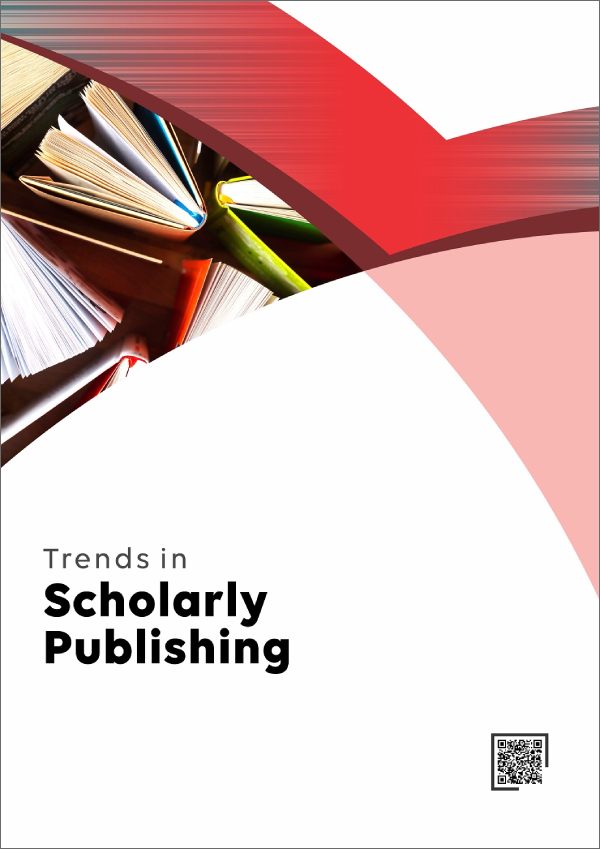Trends in Scholarly Publishing
Trends in Scholarly Publishing (TSP) is a peer-reviewed, open-access, online-first journal committed to fostering research and dialogue in the field of scholarly publishing. Since its launch in January 2021, TSP has served as a vital platform for editors, publishers, librarians, and academic professionals, exploring emerging practices, technologies, and ethical considerations that influence the future of scholarly communication.
All content published in Trends in Scholarly Publishing is fully open access under the Creative Commons Attribution 4.0 International License (CC BY 4.0) . Articles are freely available to read, download, share, and reuse with proper citation, ensuring unrestricted global access.
Aims and Scope
Trends in Scholarly Publishing (TSP) is a peer-reviewed, open-access journal dedicated to advancing understanding and practice across the global scholarly communication ecosystem. The journal provides a platform for research, reviews, perspectives, and case studies that explore the evolving trends, challenges, and innovations shaping scholarly publishing.
Our readership includes publishers, editors, librarians, reviewers, researchers, policymakers, technology providers, and all professionals engaged in scholarly communication. We welcome contributions that provide evidence-based insights, critical reflections, and practical guidance to improve the quality, transparency, accessibility, and impact of scholarly publishing worldwide.
The scope of TSP covers, but is not limited to:
- Peer review innovations and integrity in research evaluation.
- Open access and open science practices, policies, and business models.
- Ethics and integrity in publishing, including issues of misconduct, predatory journals, and paper mills.
- Digital technologies in publishing, including AI, metadata standards, and workflow tools.
- Research visibility, discoverability, and metrics (citations, altmetrics, bibliometrics).
- Editorial and publishing practices in different regional and cultural contexts.
- Equity, diversity, and inclusion in scholarly communication.
- Case studies and best practices in journal development, publishing workflows, and community engagement.
Our vision is to support a more transparent, ethical, inclusive, and innovative publishing culture by sharing knowledge and fostering collaboration across disciplines and regions. TSP particularly seeks to amplify voices from Asia and the Global South, while engaging with the broader international community to reshape the future of scholarly publishing together.
Why Publish in this journal?
- Fast decisions and rapid online publication
- Discoverable in the leading indexing databases
- Global reach with impact
- Expert Editorial Board to manage submitted paper
- Personalised service from in-house staff
- Discoverable research read by millions of people
Publication Charges
Trends in Scholarly Publishing does not charge any submission or article processing fees (APCs). Publication is completely free of cost for authors, and this policy is monitored and endorsed by the Asian Council of Science Editors (ACSE).
Abstracting and Indexing
Trends in Scholarly Publishing has gained significant recognition within the academic community and has been indexed in below recognized platforms:
Application to additional international indexing services are in progress to further expand discoverability.
These indexing services ensure that the content of our journal is widely accessible and discoverable by researchers and scholars worldwide. Our published articles, reviews, and perspectives receive increased visibility and reach through these reputable databases, fostering collaboration and knowledge dissemination within the global scientific community.
Editorial Board
The Editorial Board serves as the backbone of a successful journal. The Editorial Board of Trends in Scholarly Publishing comprises the Editor-in-Chief, Managing Editor, and Editorial Board members. All Editorial Board Members are selected based on strict criteria, ensuring their active and productive contribution to the journal. The Editorial Board of Trends in Scholarly Publishing is responsible for maintaining the quality of published research, enhancing the journal's impact, and contributing to the advancement of the broader scientific community.
Full details of the Editorial Board, including names, institutional affiliations and digital identifiers, are available on the Editorial Board page of the journal website.



